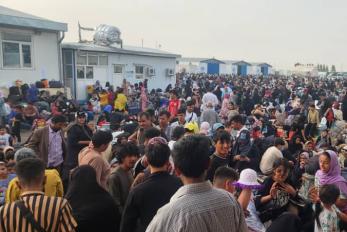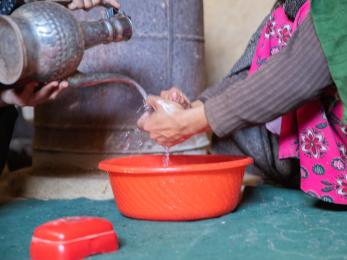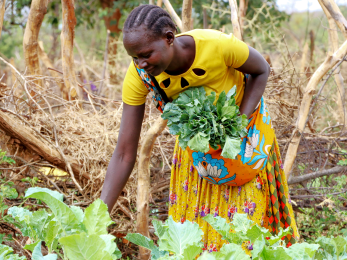Crisis Compounded
Afghanistan’s Returnees Face an Escalating Water Emergency

More than 2.6 million Afghans have been forcibly returned from Iran and Pakistan in 2025 alone, with many arriving in communities already in the grip of a humanitarian crisis. In Herat and Kandahar, an escalating water emergency is putting returnees and host communities at growing risk of disease, economic hardship, and social conflict.
Drawing on field data from 292 households as well as secondary sources, this new Mercy Corps report reveals how unprecedented mass returns are compounding the growing crisis in water access, quality, and affordability in two of Afghanistan’s most affected provinces.
Key Findings:
- Over 75% of surveyed say accessing clean water is “difficult” or “very difficult”
- 70% report worsening water availability due to returnee influxes
- 45% faced water-related health issues linked to unsafe water
- 70% reported curtailing household sanitation practices (e.g. washing hands) to save water in the home
- Water salinity and contamination were reported as widespread — especially in Kandahar where over 75% reported salty household water
- Women and children bear the brunt of this crisis, with increased exposure to disease and protection risks
The report warns that water costs in urban centers are cripplingly high and tensions are growing over shared water sources. Meanwhile, rural families are confronted with drying borewells due to recurrent drought and over-extraction. Despite the escalating emergency, most communities surveyed report little to no awareness of humanitarian or government water support.
With up to 6 million returns in total expected by the end of 2025, the situation is rapidly deteriorating. The report calls for urgent, coordinated action to respond to both immediate water access needs and lay the foundation for more sustainable solutions – with practical, evidence-based recommendations to guide policymakers, donors and humanitarian agencies in implementing effective interventions.

